Cnr Seven Oakes Avenue
and Sandringham Close [map]
Phone: Email or Fax Only
Fax: 011 672 9423
Tools, both physical and "mental," tool making and tool using, are the lifeblood of all occupations and professions. Technology is a tool to help teachers and students
do their respective jobs of teaching and learning. Data, when properly managed, offers administrators and teachers powerful tools for better decision making. Globalization, new
information and communication technologies, the networked value chain and the standardization of goods and data exchange processes have changed the role of logistics radically.
Though widely taught in the college and university business and engineering curricula, education lacks an adequate field of logistics. Worse yet, education is unaware of the dimensions
of such a field and its value in supporting a teacher's classroom duties. Can we really expect technology in the classroom to blossom into student-centered learning without giving
teachers logistical support?
Studying an occupation's tools and materials, their use and misuse, their availability or absence, and their supply, repair, replacement, and training for use make up the field of
learning called "logistics." training for use make up the field of learning called "logistics."
Recent decades have shown, logistics has developed into a cross-functional discipline with a higher requirement for education and professional skills and the requirement for the
instructional curriculum changes rapidly. It has become apparent that rapid changes in these requirements in practice and further developments in research in the logistics field
challenge educators to further upgrade their education system, their course programme and their teaching methods.
Technology can best be understood as providing a major part of the logistical support for the teaching and learning process. The personal computer is the quintessential example.
With the computer as the teacher's "assistant," teacher support is given at the point of need: to score tests, to list learning objectives mastered, to make individualized assignments
including those needed for quality control, to assign and locate resources required to accomplish an assignment, to provide target completion times and rates of progress, to select
and assign alternative lesson approaches, to flag students with entry deficiencies and proficiencies, to provide reports on individual student performance and attendance, to furnish
student data profiles for use in student counseling, and to provide feedback for corrective action to the teacher on his or her instructional effectiveness.
Deseret Education is a Private Higher Education Institution (PHEI) with qualifications that are delivered through a blend of Distance Learning model (Correspondance Learning),
Learnerships (Vocational Projects), Skills Development programmes (SDP), Evaluation and Recognition of Prior Learning (RPL) and Short Learning programmes (Certificates) that are
delivered through various mediums including contact sessions. Whether you are a student with great career aspirations, a company looking to develop employees or an education institution
that requires administrative and operational support throughout your students’ learning journey – we can help you.
Innovative Administrative and Logistics Solutions for Education and Training Institutions
STUDENT ADMINISTRATION SYSTEM (EVISION)
The Student Administration System is a sophisticated, web-based system built on an education platform. This system operates on the latest technology that enables it to store all
students’ administrative and academic data and records. eVision caters to any educational programme, is able to integrate with other software and can be used by both large and small
institutions alike.
LEARNING MANAGEMENT SYSTEM AND STUDENT PORTAL
The system acts as an access point to students’ financial, administrative and academic details. In addition, the system enables students to access learning material in an interactive
and engaging manner which includes chats, forums and quizzes.
ADMINISTRATIVE AND LOGISTICS SUPPORT
Acquiring students
Enrolling students
Distribution of study material
Ongoing student engagement and support
Assessment and Assessment Management
Graduations and Event Management
BENEFITS OF WORKING WITH DESERET EUCATION
By providing administrative and logistics services, Partners and clients can enjoy the following benefits:
No unnecessary IT and infrastructure costs
Facilitation of maintenance, updates and training on IT systems
Storage and back up of data inputted into systems
Educational Software License manageent from Most Vendors
Peace of mind for the client
All too often efforts at school improvement fail to take into account the value of giving the teacher the proper tools, materials, and activities to meet student learning and psychological
differences at the time of need. Tools are needed in the right amounts, in working order, and without burden for teachers having the know-how to use them properly. This neglect helps
explain why school reform is not possible without taking logistics into account. We expect that when schools benchmark efficient and effective organizations they will discover the most
neglected aspect of classroom teaching is the lack of logistical support of the teaching and learning process. The lack of logistical support in education goes a long way toward explaining
what is wrong with the conventional process. Each teacher has little choice except to use the dominant process tools found in most classrooms: lecture, textbook, homework assignment, and
student recitation. And the results of this "stuck in the rut" process are predictable:
1. Students whose reading levels are above or below that of the textbook are neglected and are therefore not served well
2. Teachers are short of time to give the array of explanations needed to meet the different needs of the students, therefore some students grasp what is taught, some do not get it, and
some are bored stiff because they already know the topic
3. The generally passive nature of the learning experience makes it impossible to have each student interact and less likely that students fully understand and retain the material taught
